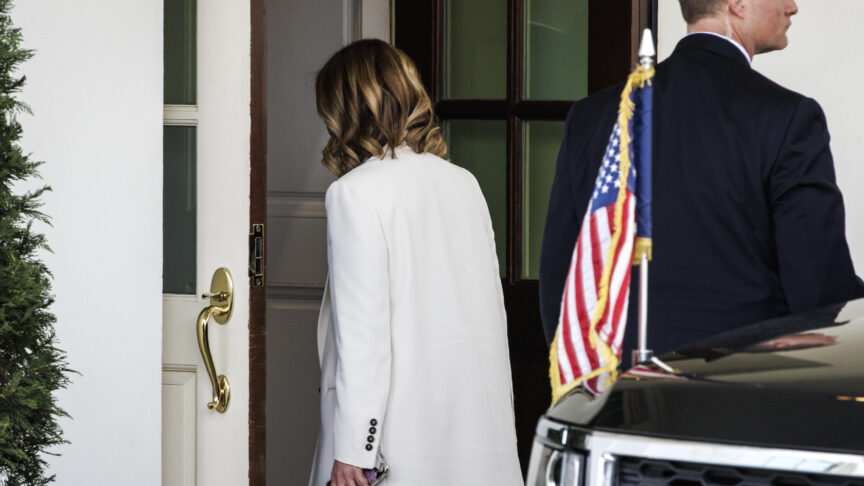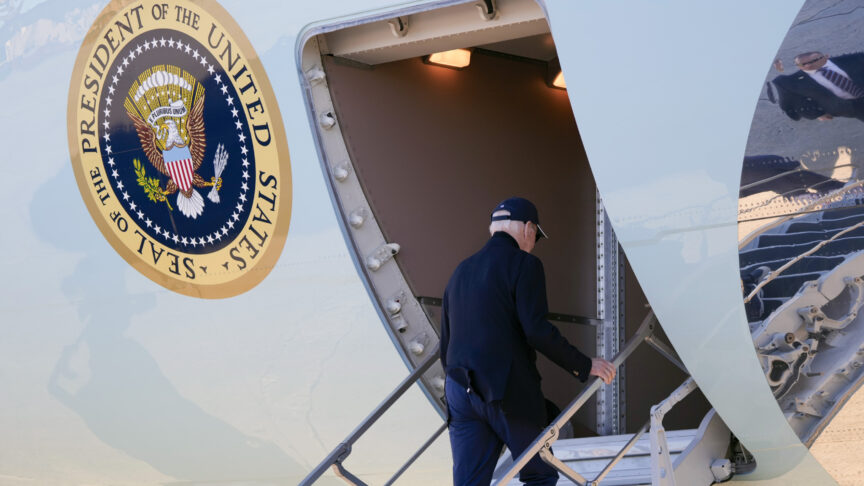State of the Union: How the energy crisis can strengthen EU unity
The European Commission president’s annual address has not pleased everybody – but its focus on energy reflects a deeper understanding of the nature of security today
This week, the president of the European Commission, Ursula von der Leyen, delivered her state of the union address. This emulation of its US cousin offers a chance to reflect on a political and economic landscape riven by the strains of pandemic and war. The president clearly came to the European Parliament with a distinct purpose: to project an image of a united EU – perhaps with the hope that, if the image is strong enough, reality will follow.
This was not just about unity behind support for Ukraine – although, with the attendance of Olga Zelensky, and the decision of many of the key members of the team around von der Leyen to wear yellow and blue, the colours of Ukraine’s flag, this was also a central theme. This was about the unity of EU member states to pull through the energy and security crisis they find themselves in. With the spectre of new governments in both Italy and Sweden involving far-right parties as a political backdrop to her speech, it was as if von der Leyen’s message on sanctions – “This is the time for resolve and not appeasement” – was directed as much at nationalist parties within the European Union and would-be wreckers of EU unity as it was to Russia.
It was as if von der Leyen’s message on sanctions was as much for nationalist parties within the EU as it was to Russia.
One might retort that it is easy for her to determinedly proclaim that EU unity can hold after an astonishing week of Ukrainian success in pushing back the Russian army, and a late summer continuing across much of Europe helping conserve gas supplies. Critics of continued and tightening sanctions inside the EU have temporarily fallen quiet.
But the substance of the address also sought to set out a vision of longer-term, sustainable energy security. This has the potential to unite Europeans, including against the other adversary that wrought havoc this summer: climate change. She argued for the EU to act strategically not just in decoupling from Russia but in diversifying the relationships that underpin European energy security. The president used the platform to announce that the Commission would introduce a Critical Raw Materials Act, focused on access to lithium and rare earths. This plan acknowledged not only the need to bring the fossil fuel era to a close but also to build up green tech to exploit renewable energy sources – avoiding repeating the mistakes of the past in becoming overdependent on a small number of partners.
In this spirit, von der Leyen also announced the creation of a European Hydrogen Bank, which would secure €3 billion investment in the sector. This supports the rapid scale-up of renewable energy foreseen in the RePowerEU plan in May, and could help manage the socio-economic consequences of the transition to sustainable energy security. She argued that “the future of our children needs both that we invest in sustainability, but also that we invest sustainably.”
Crucially in this regard, she also acknowledged “a new reality of higher public debt.” This was perhaps one of the most political elements of the speech. The debate over financing will not be easy given the longstanding divisions within Europe over borrowing to invest – and especially in a political climate in which citizens are fearful about the economy, the cost of living, and their basic security in a crumbling global order. But it is nevertheless a debate that is necessary and that needs to happen quickly if the president’s vision of “resolve and not appeasement” is to hold.
This acknowledgment of the need to learn to live with high debt was not the only element of the speech to spark controversy – in that instance, among more fiscally conservative member states. Criticism came straight away in the European Parliament debate that followed – for example, from Manon Aubry of La France Insoumise – that the president had given insufficient recognition in her energy package to the crisis that European citizens were going through with skyrocketing bills, with outrage at the president’s response that she should send the bills to Moscow. There was much criticism in online analysis of the speech of the lack of mention of the food crisis in her words.
Guy Verhofstadt expressed shock that the president made no mention of security. But his comments appeared to miss a recognition that Europeans’ understanding of security has grown up. Protecting citizens today is as much about our economic, energy, and tech sovereignty as it is about our classic military capabilities. In this sense the state of the union still leaves a lot to be desired, as ECFR’s recent European Sovereignty Index showed. Across the six ‘terrains’ that the index examined – economic, climate, tech, migration, security, and health sovereignty – the EU scored well only on health and economic sovereignty. In all other areas it was satisfactory or poor.
This was the third state of the union speech from von der Leyen, and is likely to be her last – in this mandate at least – in which she has a real ability to shape what follows it. By this time next year all the focus will be on the next Commission in 2024. This gives her a year to make a reality of the picture of unity that she painted this week. The first six months of Russia’s war have seen some important steps forward in member states’ willingness to work together to protect Europe, through a major series of sanctions packages, and the beginnings of efforts to build energy sovereignty. But sustaining this momentum through a long war and a series of cold winters remains a formidable challenge.
The European Council on Foreign Relations does not take collective positions. ECFR publications only represent the views of their individual authors.



